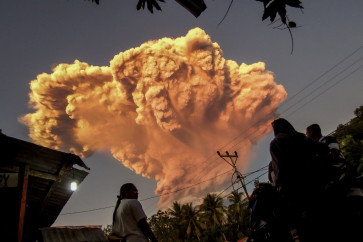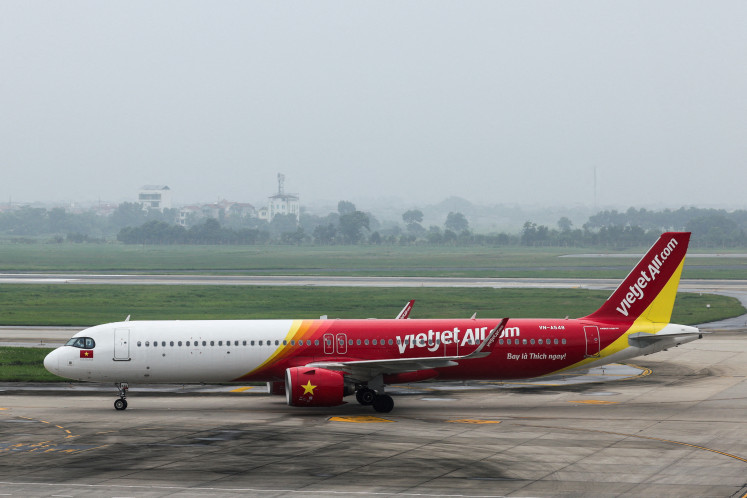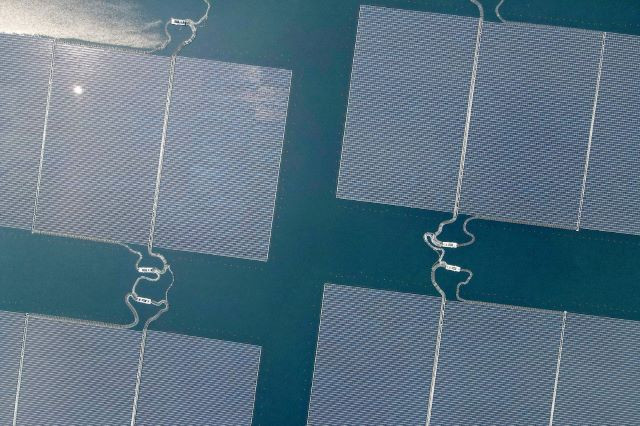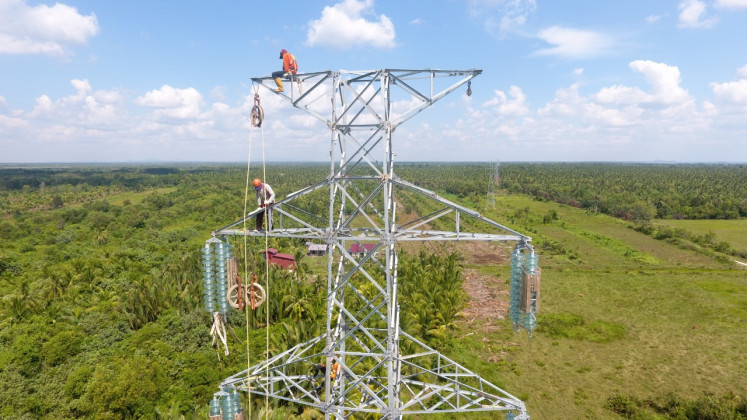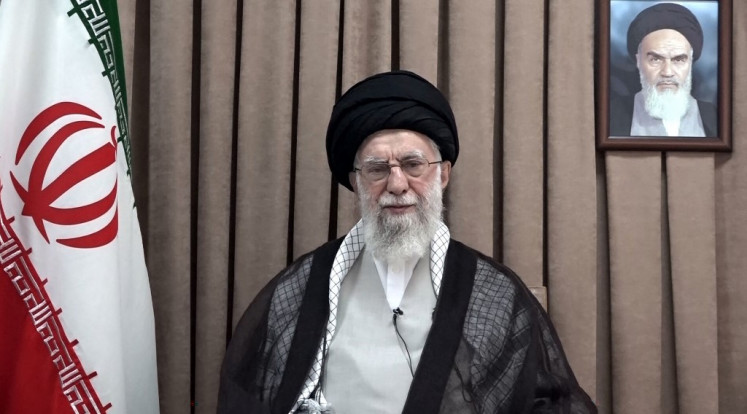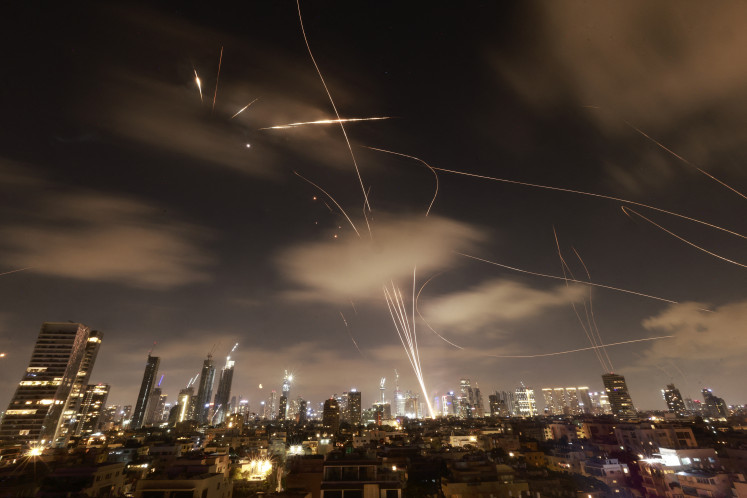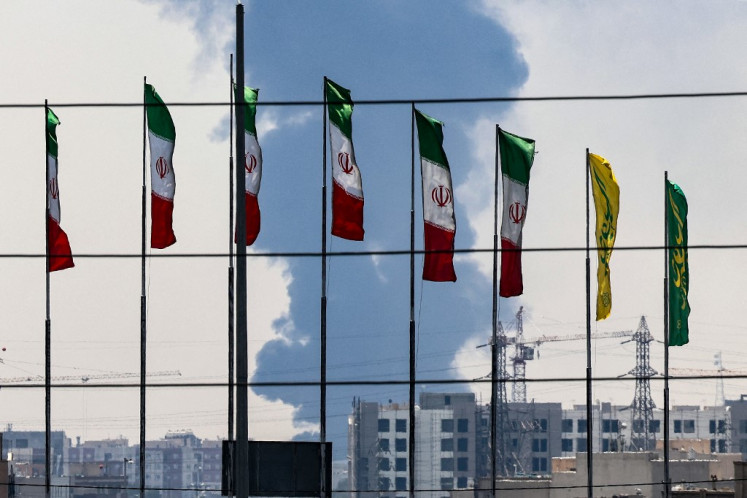Popular Reads
Top Results
Can't find what you're looking for?
View all search resultsPopular Reads
Top Results
Can't find what you're looking for?
View all search resultsNusantara’s path of collaboration and continuity
The first wave of operational facilities in the city will include hospitals, hotels, schools, offices and mixed-use township areas, with renowned real estate players and operators such as Ciputra Group, Pakuwon, RS Hermina, Jakarta International School, Pembangunan Perumahan, Vasanta and Jambuluwuk leading the way in the development.
Change text size
Gift Premium Articles
to Anyone
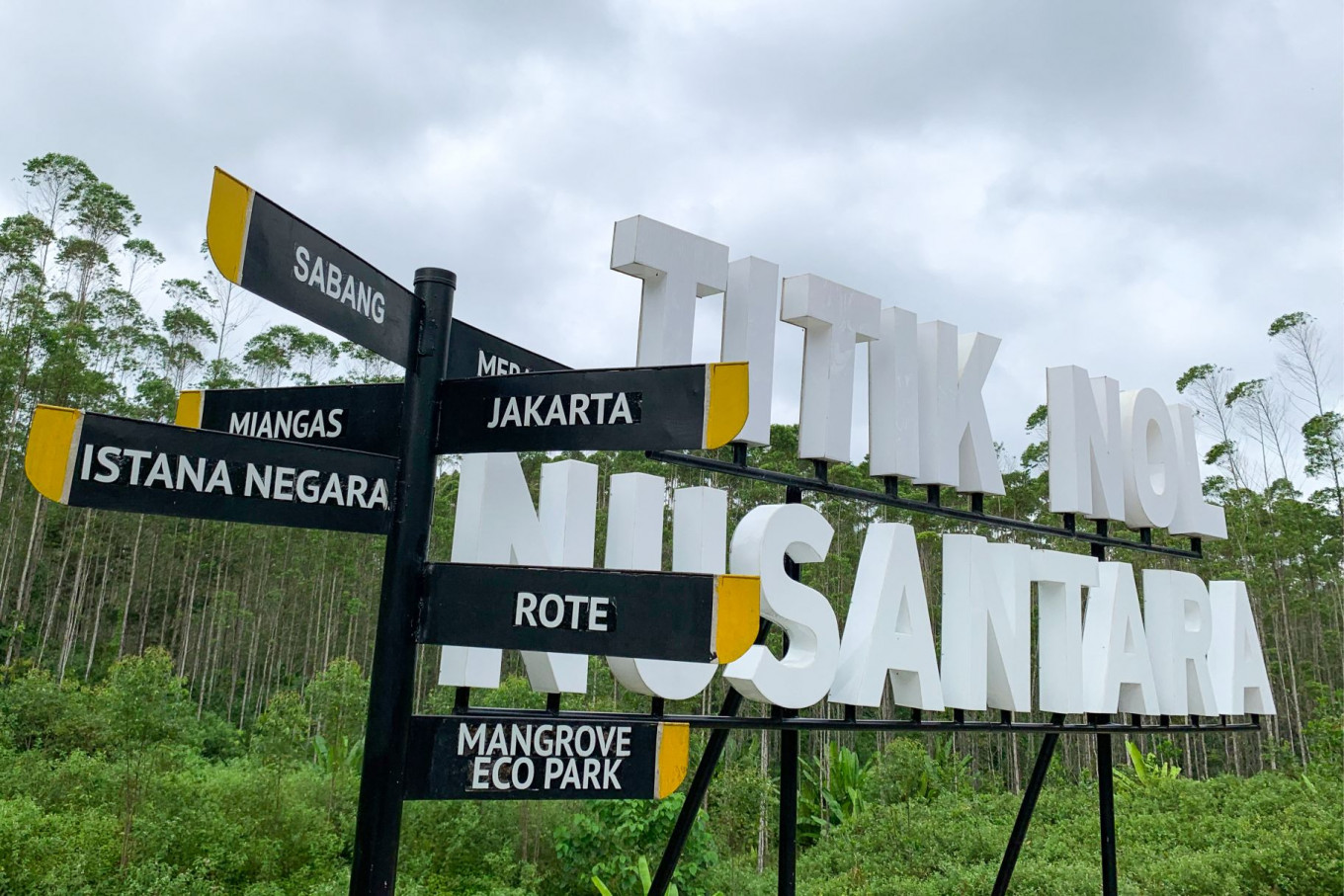 This photo from August 14, 2022, shows directions at Titik Nol Nusantara (ground zero Nusantara), Indonesia's future capital city, in Sepaku, Penajam Paser Utara, East Kalimantan. Located in eastern Borneo, the world's third-largest island, Nusantara is set to replace sinking and polluted Jakarta as Indonesia's political center by late 2024. (AFP/Adek Berry)
This photo from August 14, 2022, shows directions at Titik Nol Nusantara (ground zero Nusantara), Indonesia's future capital city, in Sepaku, Penajam Paser Utara, East Kalimantan. Located in eastern Borneo, the world's third-largest island, Nusantara is set to replace sinking and polluted Jakarta as Indonesia's political center by late 2024. (AFP/Adek Berry)
A
livable and lovable Nusantara is no longer a distant vision but has evolved into an exciting reality that is taking shape at an accelerated pace. President Joko "Jokowi" Widodo's June announcement unveiled over 300 investment packages, totaling Rp 38.62 trillion (US$2.6 billion), to attract private sector funding.
These strategic packages aim to bridge the $32 billion funding gap for infrastructure development, and prioritize 15 sectors such as housing, education, healthcare and mixed-use development, and opening a world of opportunities for potential investors.
Commitment and collaboration strengthen confidence
While it is still too early to discuss possible outcomes of this investment, the Nusantara Capital City Authority (OIKN) has been working diligently to secure initial buy-in. Domestic investors have already shown strong support. The first wave of operational facilities in the city will include hospitals, hotels, schools, offices and mixed-use township areas, with renowned real estate players and operators such as Ciputra Group, Pakuwon, RS Hermina, Jakarta International School, Pembangunan Perumahan, Vasanta and Jambuluwuk leading the way in the development. Once fully completed, these amenities will be conveniently accessible within 10 minutes from all residential areas, while residents will enjoy on-demand transportation, tele-health services and integrated e-government solutions enabled by the city’s smart platform.
The issuance of newly acquired land certificates with IKN management rights (HPL) status also enables private companies utilizing non-state budget funding to promptly proceed with their construction plans. Additionally, the micro, small and medium enterprises (MSMEs) dissemination and assistance program has received a positive response, offering incentives such as zero-percent final income tax for MSMEs and valuable guidance on penetrating retail and export markets.
Collaboration stands as the cornerstone of Nusantara's path to success. On the international stage, global powerhouses including the United States, France, South Korea, Japan, China, Germany, Singapore and the United Arab Emirates have shown significant interest in actively contributing to this ambitious project, underscoring its significance and potential impact.
In pursuit of Nusantara's vision as a smart city with seamless citizen services and advanced energy, water and waste management systems, industry leaders Thales from France and Siemens from Germany have signed a Memorandum of Understanding (MOU) with the IKN Authority to develop the smart city platform and technology architecture as well as to oversee deployment, ensuring that expertise and innovation shape the city's future.
A significant milestone was achieved when Nusantara signed an MOU with the city of Shenzhen, China to foster a robust knowledge exchange. Shenzhen's remarkable journey from a modest fishing village to China's third-largest city over the past four decades serves as an inspiring example for Nusantara. Just like Nusantara, Shenzhen started from scratch, and through relentless innovation and development, it has emerged as a hub for technology companies listed in the Fortune Global 500. Shenzhen's commitment to environmental sustainability as a "sponge city" has earned it widespread recognition, showing that Nusantara is on track to achieving its vision as a smart and sustainable forest city, fortified by fruitful partnerships and unwavering commitment to progress.
This builds upon successful collaboration with other new capital cities, such as Astana, with which an agreement was signed last month, and Canberra, establishing a culture of sharing best practices among sister cities. Canberra, designated as the capital city of Australia in 1908, laid the foundation for its civic center and landscape design, drawing inspiration from the English Garden City movement. Over the years, Canberra has undergone remarkable transformational growth, solidifying its position as the focal point of national administration and housing numerous key Australian institutions.
Nusantara, as a burgeoning capital city, holds immense potential to become a new economic growth center, blending the essence of "Canberra at the core" with the dynamism of "Shenzhen in its surrounding." The overarching goal is to evolve into a globally renowned city that caters to the needs of all, attracting investments from leading nations and fostering unparalleled livability on an international scale.
Unwavering continuity: Nusantara's path to national pride and progress
Political continuity beyond President Jokowi's term in 2024 has been raised as a potential challenge in achieving the project's goals. However, it is essential to recognize that the issue of leadership changes during critical infrastructure development is not unprecedented. President Jokowi himself demonstrated this during his tenure as the Governor of Jakarta when he spearheaded the development of the city’s well-loved MRT. Despite facing multiple rounds of governor changes, the project successfully materialized, showcasing the resilience of infrastructure initiatives. The MRT now stands as a symbol of pride for Jakarta's residents and leaves a lasting impression on tourists and expatriates, emphasizing that project continuity transcends party lines and represents a collective national vision.
To fully embrace this collective national vision, a profound mindset shift is imperative. This encompasses not only the physical infrastructure but also the very fabric of our community values. Nusantara's growth hinges on the unwavering commitment of all stakeholders, united by a shared determination to witness the capital city flourish as a truly livable and cherished hub. The project stands ready to overcome any transitional hurdles and propel itself toward becoming a national pride and progressive achievement.
-- This is the third article in our series that examines Indonesia's top-10 priorities in achieving the country’s vision.
***
Lenita Tobing is a managing director and partner of Boston Consulting Group. Agung Wicaksono is the deputy for funding and investment of the Nusantara Capital City Authority (OIKN).



